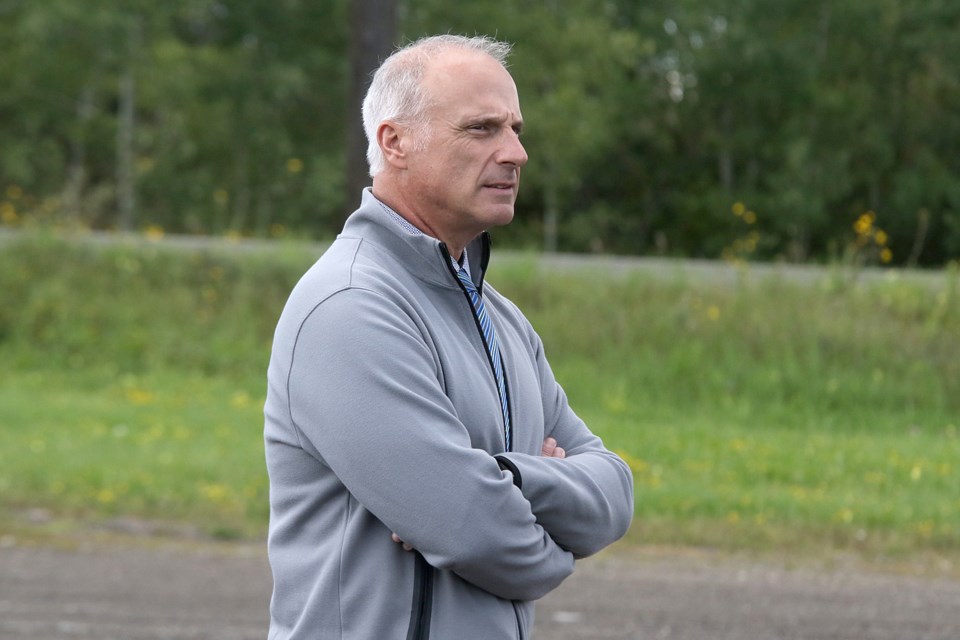THUNDER BAY – On March 4, 2020, the Dryden Ice Dogs edged the Wisconsin Lumberjacks 4-3 in overtime.
Little did they know it would be the last time a Canadian-based Superior International Junior Hockey League team would venture south of the border for more than a year-and-a-half.
On Friday, the streak ends at 617 days.
With the United States land border finally reopening to international travelers, the league has been scrambling to put together a schedule that includes games on American soil involving Canadian teams that makes both logistic and economic sense.
Darrin Nicholas, president of the SIJHL, said it’s been a long time coming and the change doesn’t come without hurdles – most notably the need for teams to get tested before returning to Canada, an expensive obstacle he hopes is just a short-term requirement.
“It’s not over yet, that’s for sure. We think we’ve got a draft of the schedule to go forward with. It’s about 90 per cent done. We just need to confirm some building availability dates in some of our markets,” Nicholas said.
“It’s sort of been the theme of our pandemic. Long-term plans are made at the peril and you have to be able to react at any time. That’s kind of exactly what we’ve been living the last year-and-a-half.”
Nicholas said the testing requirement presents its own set of challenges. Canadian teams can get tested prior to leaving, but must return to the border within a tight 72-hour window. For the Thunder Bay North Stars, who travel to Wisconsin this weekend, and the Fort Frances Lakers, it’s a relatively simple – though costly – task.
For the Red Lake Miners and Dryden Ice Dogs, who don’t live in border towns, they’ll have to allocate part of their travel time in order to get tested – and in some cases could already be in the United States once their test results are sent.
There are perils in that too, Nicholas said. What if a player or coach tests positive mid-road trip?
It’s something they’ll have to factor into protocols as the international part of the SIJHL’s name ramps up again. Luckily, the American teams have struck deals in the States to get free or deeply discounted tests all season long, a financial advantage not available to the Canadian teams.
Nicholas said he’s hopeful either the province will help out or the federal government will relax its travel rules and drop the need for a molecular test – which can cost anywhere from $100 to $300 – at the border.
“We’re looking at maybe the possibility of an exemption of sorts. I know there’s an exemption for testing if you’re deeming your travel to be essential and I’m not sure if there’s a round peg we can put in that square hole,” Nicholas said.
“But we’re going to try to see if there’s something out there anyway. To go through the full season, it’s going to be approaching near six figures to get all of our testing done. That’s obviously monumental for a league of our size, without question.”
The Wisconsin Lumberjacks have ventured north of the border on several occasions already this season, while Thief River Falls, a team that struggled to fill its roster, has yet to cross into Canada.
